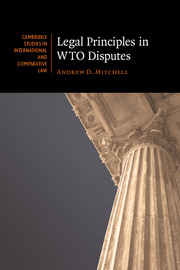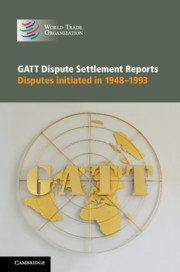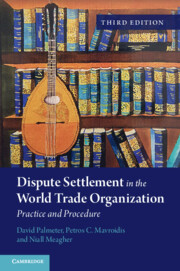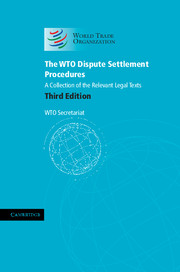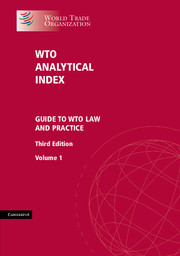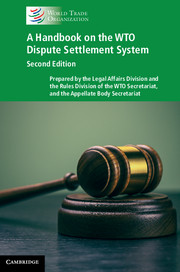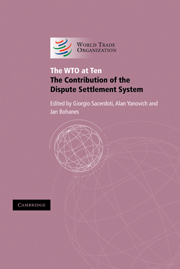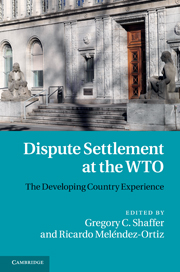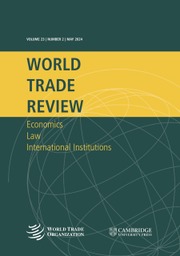Legal Principles in WTO Disputes
£36.99
Part of Cambridge Studies in International and Comparative Law
- Author: Andrew D. Mitchell, University of Melbourne
- Date Published: November 2011
- availability: In stock
- format: Paperback
- isbn: 9781107401631
£
36.99
Paperback
Other available formats:
Hardback, eBook
Looking for an inspection copy?
This title is not currently available on inspection
-
Principles play a crucial role in any dispute settlement system, and the World Trade Organization (WTO) is no exception. However, WTO Panels and the Appellate Body have been too timid in using principles, sometimes avoiding their use when appropriate and at other times using them without fully acknowledging that they are doing so. Perhaps more worryingly, these bodies often fail to delve deeply enough into principles. They tend to overlook key questions such as the legal basis for using a given principle, whether the principle is being used in an interpretative manner or as applicable law and the meaning of the principle in public international law. This book establishes a framework for addressing these questions. The use of such a framework should allay fears and misconceptions about the use of principles and ensure that they are used in a justifiable manner, improving the quality of dispute settlement in the WTO.
Read more- Examines how the WTO interacts with public international law, allowing WTO and public international lawyers to see the connections between bodies of law that are sometimes compartmentalised
- Discusses the roles of international law and legal theory in WTO disputes while taking into account practical ramifications, thus offering a balance between theory and practice
- The problems with the current situation are made clear to readers, and the book also provides a clear framework for resolving them
Reviews & endorsements
Review of the hardback: 'The book is well structured, clearly written and eminently readable (which is an achievement in and of itself, given the complexity of the subject matter). In addition, Dr Mitchell does not shy away from using scholarship and development in other fields in the course of his arguments … an important resource and excellent starting point for the consideration of issues surrounding the use of legal principles within the WTO context … Dr Mitchell's book is an eminently useful and worthy addition to any collection of trade law literature and a valuable resource for academic, practitioner or student.' Journal of International Economic Law
Customer reviews
Not yet reviewed
Be the first to review
Review was not posted due to profanity
×Product details
- Date Published: November 2011
- format: Paperback
- isbn: 9781107401631
- length: 364 pages
- dimensions: 228 x 152 x 17 mm
- weight: 0.58kg
- availability: In stock
Table of Contents
1. Introduction
Part I. A Framework for Principles:
2. Principles of particular relevance to the WTO
3. Legal basis for using principles in WTO disputes
Part II. Selected Principles Examined:
4. Good faith
5. Due process
6. Proportionality
7. Special and differential treatment
8. Conclusion.
Sorry, this resource is locked
Please register or sign in to request access. If you are having problems accessing these resources please email [email protected]
Register Sign in» Proceed
You are now leaving the Cambridge University Press website. Your eBook purchase and download will be completed by our partner www.ebooks.com. Please see the permission section of the www.ebooks.com catalogue page for details of the print & copy limits on our eBooks.
Continue ×Are you sure you want to delete your account?
This cannot be undone.
Thank you for your feedback which will help us improve our service.
If you requested a response, we will make sure to get back to you shortly.
×
